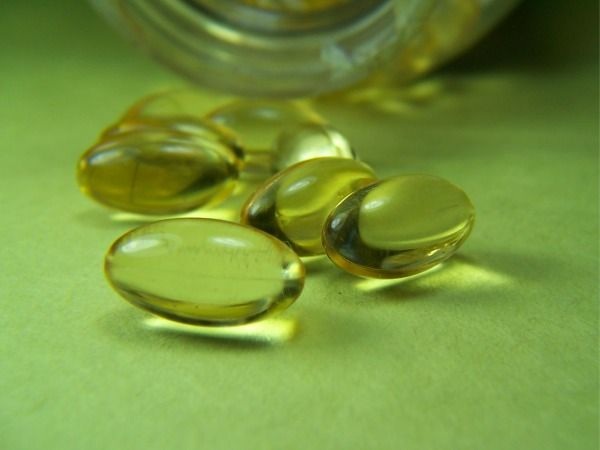By Paula Zavala | Health Editor
Many people would agree that the less calories you consume, the better. For example, if a high school student was given the option to choose between a regular Pepsi and a Diet Pepsi, he or she would likely choose the Diet Pepsi. However, simply because something contains fewer calories it doesn’t necessarily mean that it’s the better choice. Diet sodas can be detrimental to one’s health because of the chemical substances present, potentially posing a risk to one’s health and wellness.
Diet sodas contain fewer calories than regular sodas, but in order for it to contain less calories, it requires a substitute for sugar. This substitute is an ingredient called aspartame. Aspartame, also known as NutraSweet, is an artificial sweetener which was accidentally discovered by James Schlatter, a chemist of G.D. Searle Company, in 1965. Aspartame contains phenylalanine and has been used as a sugar substitute for over twenty years. Phenylalanine is an amino acid that we consume in moderation and can be typically found in the brain.
According to Dr. Russell L. Blaylock, a professor of neurosurgery at the Medical University of Mississippi, when large amounts of aspartame are consumed, it causes the levels of phenylalanine to increase drastically. When there’s an excessive amount of phenylalanine in the brain, people can become prone to seizures, memory loss, epilepsy, hypoglycemia, and even death.
Another study was conducted by scientists from the Brigham and Women’s Hospital in Boston, Massachusetts. The study stated that people who drank two or more diet sodas a day were more likely to develop kidney failure.
Many people would agree that the less calories you consume, the better. For example, if a high school student was given the option to choose between a regular Pepsi and a Diet Pepsi, he or she would likely choose the Diet Pepsi. However, simply because something contains fewer calories it doesn’t necessarily mean that it’s the better choice. Diet sodas can be detrimental to one’s health because of the chemical substances present, potentially posing a risk to one’s health and wellness.
Diet sodas contain fewer calories than regular sodas, but in order for it to contain less calories, it requires a substitute for sugar. This substitute is an ingredient called aspartame. Aspartame, also known as NutraSweet, is an artificial sweetener which was accidentally discovered by James Schlatter, a chemist of G.D. Searle Company, in 1965. Aspartame contains phenylalanine and has been used as a sugar substitute for over twenty years. Phenylalanine is an amino acid that we consume in moderation and can be typically found in the brain.
According to Dr. Russell L. Blaylock, a professor of neurosurgery at the Medical University of Mississippi, when large amounts of aspartame are consumed, it causes the levels of phenylalanine to increase drastically. When there’s an excessive amount of phenylalanine in the brain, people can become prone to seizures, memory loss, epilepsy, hypoglycemia, and even death.
Another study was conducted by scientists from the Brigham and Women’s Hospital in Boston, Massachusetts. The study stated that people who drank two or more diet sodas a day were more likely to develop kidney failure.
Although aspartame raises concerns, it was approved by the Food and Drug Administration (FDA) in 1974. If the FDA approved it then that means it’s safe to consume right? Well, that’s not entirely true.
The FDA’s approval didn’t fully convince people, so Assistant U.S. Attorney William Conlon did a little more investigating on the case when the Searle Company hired him. His investigations found that seizures, brain holes, and tumors were in fact the effects of aspartame. Unfortunately, these results were modified in the final reports prior to being sent to the FDA to look over.
In fact, some people strongly approve of aspartame. Many people believe that it enhances and lengthens the flavors of food and beverages, allows diabetics to have desserts without worrying about it affecting their blood sugar, and reduces one’s chances of getting tooth decay.
Even school officials show their support for this dietary product. They blame the cause of childhood obesity on sugary sodas. In order to improve this issue, they agreed to replace regular sodas with low-calorie beverages. They believe that it helps the students lose weight and stay healthy by consuming few calories.
If school officials were really concerned about a child’s health, they wouldn’t be supporting something that causes risky effects in the long-run. If obesity is their main concern, then they should simply encourage the students to exercise more or enforce a requirement stating that each child must take part in physical education three or four times a week.
On the other hand, it’s cheaper to produce sugar substitutes like aspartame than regular sugar. Sugar substitutes do a good job of not leaving behind bacteria that can potentially produce residue on our teeth. As a result, it lowers our chances of getting tooth decay and cavities and in doing so it allows us to save money by not going to the dentist as frequently. Also, aspartame and other sugar substitutes enable food to digest easier and faster.
According to the scientists at Purdue University, an experiment was done back in 2004 to determine if animals gained or lost weight by eating artificially sweetened yogurt within two weeks. After the two weeks were up, the scientists found that the animals gained more weight and consumed more calories with the artificially sweetened yogurt as opposed to the animals that consumed the natural sugar, glucose.
Another study took place back in 1969 when Dr. Harry Waisman observed the effects of aspartame in baby primates. He concluded that after 300 days, one of the primates died, the other five suffered seizures, and the only living one was the animal that wasn’t affected by the aspartame. This shows that aspartame and other sugar substitutes are not only harmful to one’s health, but they are just as harmful to animals.
People, specifically high school students and older, need to become aware about what goes into their food and beverages. It’s hard to imagine that someone wouldn’t give any thought into what ingredients or preservatives may have been added to their meal. Our health should be one of our top priorities because what may seem beneficial to us now may be the factor that harms us as we get older.
The FDA’s approval didn’t fully convince people, so Assistant U.S. Attorney William Conlon did a little more investigating on the case when the Searle Company hired him. His investigations found that seizures, brain holes, and tumors were in fact the effects of aspartame. Unfortunately, these results were modified in the final reports prior to being sent to the FDA to look over.
In fact, some people strongly approve of aspartame. Many people believe that it enhances and lengthens the flavors of food and beverages, allows diabetics to have desserts without worrying about it affecting their blood sugar, and reduces one’s chances of getting tooth decay.
Even school officials show their support for this dietary product. They blame the cause of childhood obesity on sugary sodas. In order to improve this issue, they agreed to replace regular sodas with low-calorie beverages. They believe that it helps the students lose weight and stay healthy by consuming few calories.
If school officials were really concerned about a child’s health, they wouldn’t be supporting something that causes risky effects in the long-run. If obesity is their main concern, then they should simply encourage the students to exercise more or enforce a requirement stating that each child must take part in physical education three or four times a week.
On the other hand, it’s cheaper to produce sugar substitutes like aspartame than regular sugar. Sugar substitutes do a good job of not leaving behind bacteria that can potentially produce residue on our teeth. As a result, it lowers our chances of getting tooth decay and cavities and in doing so it allows us to save money by not going to the dentist as frequently. Also, aspartame and other sugar substitutes enable food to digest easier and faster.
According to the scientists at Purdue University, an experiment was done back in 2004 to determine if animals gained or lost weight by eating artificially sweetened yogurt within two weeks. After the two weeks were up, the scientists found that the animals gained more weight and consumed more calories with the artificially sweetened yogurt as opposed to the animals that consumed the natural sugar, glucose.
Another study took place back in 1969 when Dr. Harry Waisman observed the effects of aspartame in baby primates. He concluded that after 300 days, one of the primates died, the other five suffered seizures, and the only living one was the animal that wasn’t affected by the aspartame. This shows that aspartame and other sugar substitutes are not only harmful to one’s health, but they are just as harmful to animals.
People, specifically high school students and older, need to become aware about what goes into their food and beverages. It’s hard to imagine that someone wouldn’t give any thought into what ingredients or preservatives may have been added to their meal. Our health should be one of our top priorities because what may seem beneficial to us now may be the factor that harms us as we get older.





 RSS Feed
RSS Feed


